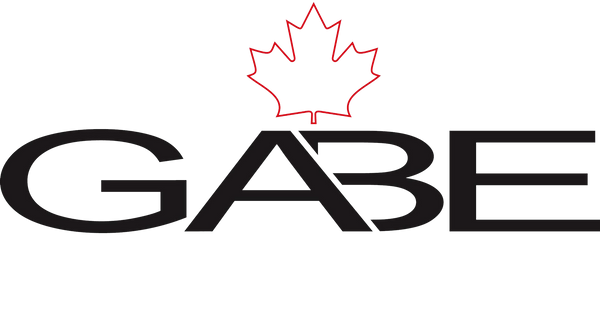
Egyptian Cotton: What's So Special About It?
Share
With the sheer amount of textile options on the market, clothing brands constantly wrestle with decisions about fabric choice; balancing cost, quality, and brand image.
One fabric, however, has continually stood out, achieving an almost mythical status in the textile world: Egyptian Cotton. But what's behind this mystique? Why is Egyptian Cotton held in such esteem, and is it the right choice for your brand? Let's uncover the allure of this famed material.
What Is Egyptian Cotton?
When one delves into fabric selection for apparel, bedding, or even home furnishings, the tag 'Egyptian Cotton' is omnipresent, synonymous with luxury and quality. Yet, there are frequent misunderstandings surrounding it.
Misconceptions About Egyptian Cotton
Some argue it's just a luxury branding tool, a mere moniker to up the price tag. Others question if there's any tangible difference between Egyptian cotton and its counterparts. Aren't all cottons fundamentally the same?
Addressing the Misconceptions
To truly appreciate the uniqueness of Egyptian cotton, one needs to start at its roots, quite literally. The Nile River Valley, with its nutrient-rich soil and unique climate, fosters a cotton variant that is unparalleled. This environment births cotton with an unusually long fiber. This length is not just a trivial measurement; it translates into a finer yarn, resulting in a fabric that's not only softer but also more breathable.
Furthermore, Egyptian cotton's strength is legendary. Garments made from it aren’t just about immediate comfort; they're an investment in longevity. They resist wear and tear far better than most other cottons.
To simplify:
- Length of Fiber: Determines softness and breathability. Longer is better.
- Strength of Fiber: Dictates durability. Stronger ensures a prolonged garment life.
A Close Examination: Egyptian Cotton vs. Other Varieties
Fundamental Characteristics of Cotton
Before comparing Egyptian Cotton to other types, it's essential to understand the basic properties that define any cotton's quality:
Staple Length: Refers to the length of individual cotton fibers. Longer fibers generally produce softer, smoother, and stronger yarns.Fiber Strength: A strong fiber can withstand wear and tear, resulting in durable garments or textiles.
Fineness: A finer fiber can be spun into finer yarn, often sought after for its smooth finish.
Unique Characteristics of Egyptian Cotton
Staple Length: Egyptian Cotton has one of the longest staple lengths among cotton varieties. This means it can be spun into a finer yarn, which translates to softer and smoother fabrics.
Durability: The strength of Egyptian Cotton fibers ensures that textiles made from them are long-lasting.
Breathability: Its unique properties provide better air circulation, making garments feel cooler against the skin.
Comparing Other Popular Cottons
- Upland Cotton: The most commonly used cotton. It has a shorter staple, which often results in a rougher texture.
- Pima/Supima Cotton: Close in quality to Egyptian Cotton with a long staple. However, while Pima cotton is grown in the U.S., the growing conditions differ, slightly affecting the fiber's characteristics.
- Sea Island Cotton: Known for its luxurious softness and rarity. Its staple length is comparable to Egyptian Cotton, but it's less widely available and often more expensive.
Cultivation and Production: A Unique Process
The Nile River Valley's specific growing conditions play an integral part of Egyptian cotton's unique properties.
Soil and Climate: The nutrient-rich soil of the Nile Delta, combined with a moderate climate, offers ideal conditions for cotton cultivation. This combination ensures a consistent yield of high-quality cotton year after year.
Harvesting: Egyptian Cotton is primarily hand-picked. This method, while more labor-intensive, is gentler on the fibers, ensuring they remain straight and intact. Mechanical picking, on the other hand, can stress and break the fibers.
Post-harvest Processing: Once harvested, the cotton undergoes ginning, spinning, and weaving. Due to its long fibers, Egyptian Cotton can be spun into finer threads. The result? A higher thread count without sacrificing the fabric's breathability or strength.
Implications for Clothing Brands
Understanding the unique properties of Egyptian Cotton can offer brands a competitive edge in the saturated clothing market.
Brand Differentiation: Incorporating Egyptian Cotton into product lines can elevate a brand’s overall image. It speaks to luxury, durability, and comfort.
Consumer Trust: Today's consumers are more educated and discerning. Offering products made from trusted, high-quality materials like Egyptian Cotton can cultivate brand loyalty.
Pricing Strategy: While Egyptian Cotton comes with higher procurement costs, the longevity and feel of the end product justify a premium pricing model.
Decoding Egyptian Cotton Certifications
Brands should be equipped to verify the authenticity of the Egyptian Cotton they purchase. Here's a primer on the main certifications:
- Cotton Egypt Association (CEA): A non-profit that certifies genuine Egyptian Cotton. They use DNA testing to ensure the purity and origin of the cotton.
- Oeko-Tex Standard: This certification ensures the cotton is free from harmful chemicals and meets rigorous environmental criteria throughout its production.
- Fair Trade: While not exclusive to Egyptian Cotton, this certification confirms the cotton was produced under fair labor conditions.
- Sustainability and Ethical Considerations: Brands keen on sustainability can benefit from Egyptian Cotton's mostly hand-picked harvesting method, which reduces carbon emissions compared to mechanized methods. Additionally, by sourcing from fair-trade farms, brands can ensure ethical labor practices.
Conclusion: A Fabric Worth the Investment
For clothing brands looking to stand out, materials matter. Egyptian Cotton, with its superior quality and comfort, offers a compelling proposition.
While it comes at a higher upfront cost, the longevity and appeal of the final product can enhance brand value and customer satisfaction. Moreover, the narrative around its unique cultivation process and the luxurious feel it offers can be a cornerstone in storytelling and marketing efforts.
However, as with any premium material, due diligence is essential. Brands must ensure they're sourcing genuine Egyptian Cotton by understanding certifications and partnering with trusted suppliers.
